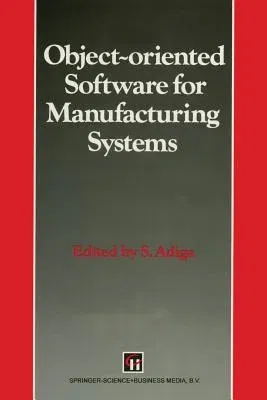S Adiga
(Author)Object-Oriented Software for Manufacturing Systems (1993)Paperback - 1993, 23 October 2012

Qty
1
Turbo
Ships in 2 - 3 days
In Stock
Free Delivery
Cash on Delivery
15 Days
Free Returns
Secure Checkout
Part of Series
Intelligent Manufactoring
Print Length
270 pages
Language
English
Publisher
Springer
Date Published
23 Oct 2012
ISBN-10
9401060282
ISBN-13
9789401060288
Description
Product Details
Author:
Book Edition:
1993
Book Format:
Paperback
Country of Origin:
NL
Date Published:
23 October 2012
Dimensions:
23.39 x
15.6 x
1.52 cm
ISBN-10:
9401060282
ISBN-13:
9789401060288
Language:
English
Location:
Dordrecht
Pages:
270
Publisher:
Series:
Weight:
408.23 gm

